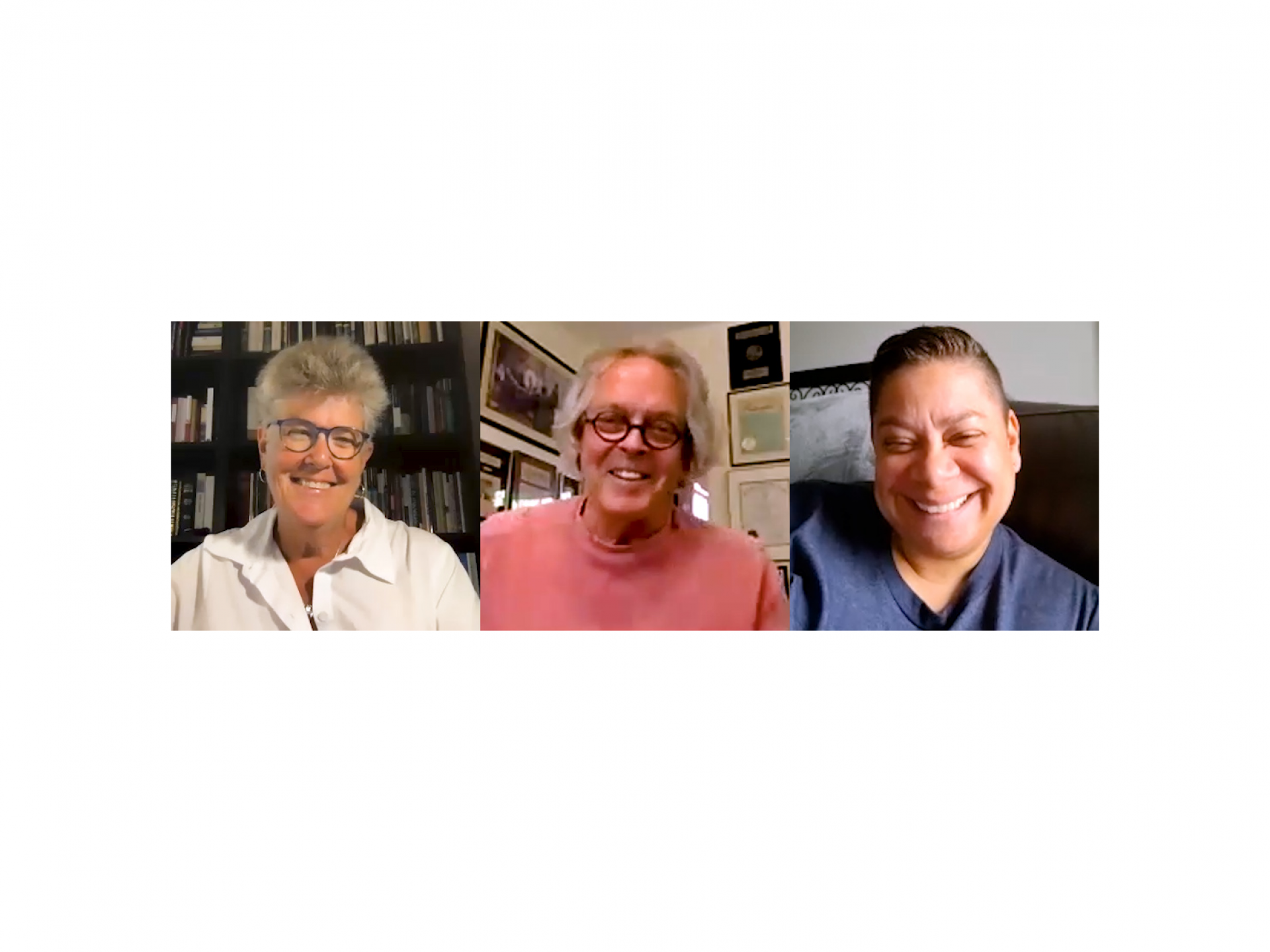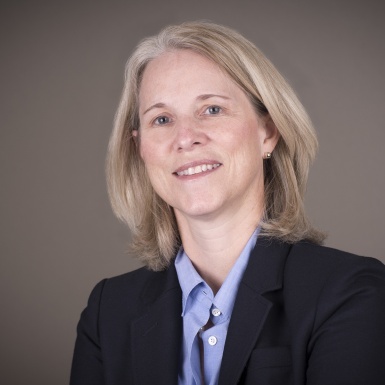Giving Voice to What Matters Most: Our Stories

Sign up and receive information on the latest news and updates.
UsAgainstAlzheimer’s is launching “Giving Voice to What Matters Most” – a series featuring the stories of people who are living with dementia or at high risk for the disease. Tracey Lind, Greg O’Brien and Daisy Duarte recently met by Zoom to talk about issues that are important to them. By sharing their experiences, they hope to reduce stigma and misconceptions about dementia, and empower others to speak freely and live life to the fullest. Tracey, Greg and Daisy started by telling their stories.
Tracey Lind: My name is Tracey Lind. I am 66 years old. I live in Cleveland, Ohio. I was ordained and am a retired Episcopal priest and have spent my life as priest and city planner living in cities and serving in urban congregations. I was the dean of the Episcopal Cathedral in Cleveland – a very active, big congregation. I had a lot of energy and large public voice. I’m a writer and photographer, preacher and a teacher and a pastor.
In June of, in April of 2016 I was noticing increasing signs of confusion and loss of language, and not recognizing people. And not having a lot of energy. I thought maybe I’m just burned out. Or maybe I’m one of the worried well because my mom had recently died of Alzheimer’s, and I have a long list of family members who had dementia. And one day I didn’t recognize my own face in a mirror. And that scared the daylights out of me. And so, I called a good friend and said I need to see a neurologist and figure out what’ s going on.
After six months of testing I was diagnosed with frontotemporal degeneration, known as FTD. And I have the kind that’s called PPA, primary progressive aphasia, which is the loss of language. And I was told that if I follow the statistical course that my condition would worsen, and I would eventually not be able to talk. And that I wouldn’t be able to swallow and then I would die. And I would have my memory intact – my long-term memory. I would lose short-term memory and it would be somewhere between 7-10 years. And I was told to get my affairs in order. And so, I did that. I resigned and retired from the church job, and I went on permanent disability and tried to come to terms with it all.
And as a theologian, I tried to find meaning in it. And I have spent the last three years traveling around the globe preaching and teaching about dementia “from the inside out.” And about a year into my diagnosis, an old friend, my oldest friend, who is a doctor in California who specializes in integrative non- pharmaceutical medicine. And he said to me, “You don’t have to die from this right away. If you’re willing to come out here and work with me I’m willing to help you find a way to manage your disease.” So, I did that. I’ve been through a lot of heavy metal detox and diet changes and non-pharmaceutical but doctor prescribed regimen of vitamins and supplements. And really eliminating stress and meditating, and all of that mindful living stuff.
I am trying to manage FTD as a chronic illness rather than a terminal disease. That means I’m trying – kind of like what I’ve heard you say Daisy, I’m trying to live in the moment and not focus on the future. When I do that, life goes pretty well. And when I don’t, life gets harder. So that’s my story in a nutshell. I’ve written a couple of books, and now I’m working on a third book about dementia and the spiritual lessons that I’ve learned. And I’m working on a photography exhibit focused on finding beauty in erosion – “Eroding Beauty” is the title.
Greg O’Brien: I’m Greg O’Brien. I’m a career journalist, investigative reporter, covered everything from the mafia to organized crime, and had death threats on my life when I was younger in Arizona. I’ve written books, including “On Pluto: Inside the Mind of Alzheimer’s.” I’m also a photographer, but not as good as Tracey. I’m one of 10 kids, oldest boy, raised in Rye, NY. My dad born in the Bronx and my mom on the Upper West Side of New York.
Alzheimer’s runs in the family, as it does in Tracey’s. My mother died of Alzheimer’s, and so did my maternal grandfather and uncle, and my father was diagnosed with dementia. On Cape Cod, where I live, I became day to day caregiver for both my parents. At the same time, I started experiencing symptoms. I was in denial. This is one of my big concerns about this and maybe the most important things to say is the stereotypes about Alzheimer’s and other forms of dementia just are not true. I see the smarter people here on the call shaking their heads. It can take 20-25 years to run its course. Rudy Tanzi, of Massachusetts General Hospital, will tell you it can start in your 40s or earlier without noticeable symptoms, and its’ like a slow train wreck.
So, I started experiencing symptoms and also had two head traumas. A head trauma will not cause Alzheimer’s. But if you are pre-disposed to have it you may get it earlier, which happened with me. I also carry the Alzheimer’s gene APOE e4. At that stage, as Tracey and Daisy did, I said I can wring my hands but what am I going to do about it?
Two weeks after I was diagnosed with Alzheimer’s I was diagnosed with cancer, and I’m not treating it. It’s my exit strategy. I’m ok with that. I believe there’s a better life on the other side. But I feel that God puts you in positions with life and you can walk away from it or do something with it. And I don’t want to screw it up. If you ask my legacy, I want the Lord to say, “Well done, good and faithful servant.” And that’s all I want to do. And I want my family to be taken care of.
Daisy Duarte: You guys both gave beautiful, beautiful introductions. I’m Daisy Duarte. I’m 44 years old and I live in Missouri. My mom has early onset Alzheimer’s, and I’ve been caring for her for the last ten years. Alzheimer’s runs in our family, in my mom’s side of the family. Seventy-five percent of my mom’s side of the family has died or been diagnosed with Alzheimer’s. So, I had a 50-50 chance of being tested and coming out negative. I wasn’t so lucky because I do have the genetic mutation. I’m still not symptomatic.
But I am in a clinical trial. And I think that makes a huge difference when you enter a clinical trial and you get started with life and don’t think about the disease as much. It can rob you of everything like it has my mom. What I can say about Alzheimer’s – it does steal your loved one. It stole ten years of my mom’s life when she could have been with the family.
But at the same time, it’s made me a whole different person. Being a caregiver has brought me closer to God by a long shot. It’s brought me closer to my family. I’m the main caregiver for the family. I’m always there for my family. I’m always wanting to help. I don’t want to see anybody go through anything that I’m going through. Once you see someone you love so much go through this, you learn to appreciate and value what God has given you, and why God has put you in this place. I think God put me to be the caregiver and wants me to take over what my mom used to do for everyone in the family. I’m just blessed that I finally really committed myself to God and found him 10 years ago. And I live my life as good as I can without doing anything I shouldn’t be doing.
UsAgainstAlzheimer’s “Giving Voice to What Matters Most” series is made possible thanks to the generous support of Shawn Taylor and KPB Corporation.
